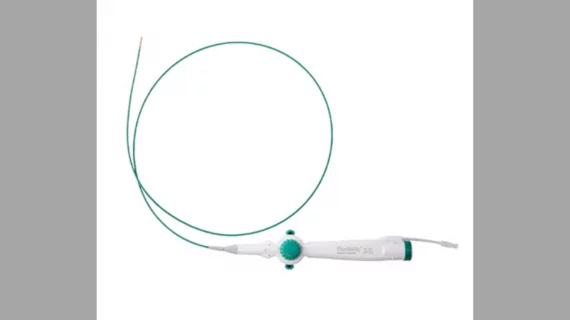Abbott gains new FDA approval for one catheter, CE mark approval for a second catheter
Abbott has announced two key regulatory approvals, including one in the United States and another in Europe.
First, the company’s FlexAbility Sensor Enabled Ablation Catheter received U.S. Food and Drug Administration (FDA) approval for a new indication. The device is now approved as a treatment option for ventricular tachycardia (VT) in patients with non-ischemic cardiomyopathy.
The FDA’s decision was based largely on data from the LESS-VT study, which focused on nearly 600 adult patients who were randomized to either undergo treatment with a previously approved ablation device or the FlexAbility SE Ablation Catheter. According to that analysis, 80% of patients treated with the FlexAbility device were free from VT for at least six months after the procedure. Improvements were seen in overall mental and physical health.
Abbott’s second big announcement was that its TactiFlex Sensor Enabled Ablation Catheter received CE Mark approval for treating patients with arrhythmias such as atrial fibrillation (AFib). The device, built with a flexible tip, was designed with shorter procedure times and reduced radiation doses in mind. Users have the option of integrating it with Abbott’s EnSite X EP System, which helps identify the areas of the heart that need ablation to terminate the arrhythmia.
“When we treat complex ablation cases for people battling arrhythmias, we want to eliminate the arrhythmia and get our patients back to living their lives,” Isabel Deisenhofer, MD, head of the department of electrophysiology at the German Heart Centre Munich in Germany, said in an Abbott prepared statement. “The TactiFlex catheter’s data around using high-power during ablation will be game-changing for patients. When you combine these tools with Abbott’s EnSite X EP System, the innovation is truly opening new doors in patient care.”
The TactiFlex Sensor Enabled Ablation Catheter is not yet approved for use in the United States, but it has been made available in Europe, Africa, Japan and Australia.
Abbott has had a busy few weeks for regulatory approvals; the company received FDA approval for its Navitor transcatheter aortic valve replacement system on Jan. 17.

